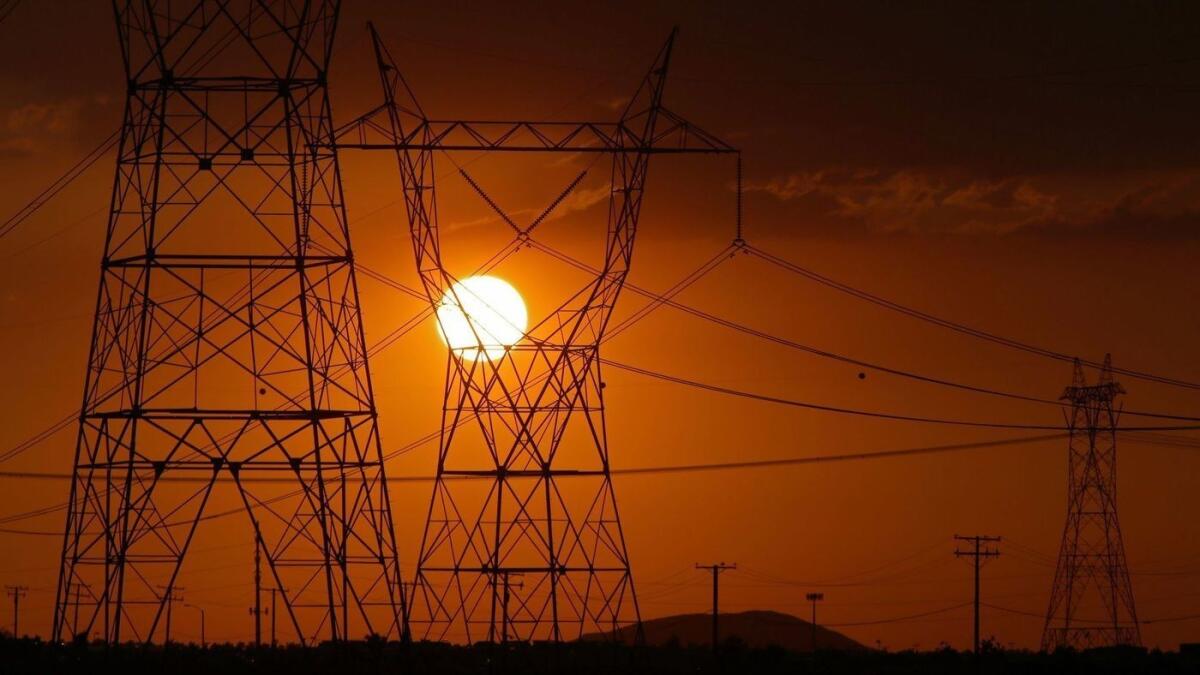The tax cut should mean you get a break in your utility bill. How much?

The federal tax law that has resulted in big savings for corporations across the country is also leading to a windfall for utility companies — and that should lead to ratepayers getting a break on their power bills.
In California, the size of that break is still being worked out.
The California Public Utilities Commission has vowed to make sure ratepayers don’t get overlooked.
“At the CPUC’s direction, electric and gas utilities and water companies under the CPUC’s jurisdiction are tracking the savings from the tax law changes and will be required to refund the savings to their customers,” Terrie Prosper, the director of the commission’s public information office, said in an email.
In the past, such refunds would be made part of a given utility’s rate case — the process that occurs every three years in which utilities make requests before the PUC on what they can charge customers.
“But given the size of the savings from these tax law changes, the PUC may take action to refund the money to customers sooner,” Prosper said.
Sempra Energy’s two utilities — Southern California Gas and San Diego Gas & Electric — are “still assessing the tax reform and how it impacts our operations.”
Southern California Edison said it plans to file a modification next month of its proposed rates for 2018-2020, which the PUC has under consideration. In its rate case filed in September 2016, Edison requested a 4% increase in the revenue it can collect from all customer categories in 2018, a 9% increase in 2019 and a 9% increase in 2020.
“Tax-related reductions resulting from the Tax Cuts and Jobs Act should lead to a reduction in the amount that SCE is requesting the commission to authorize,” Edison said in a statement.
Taken on an individual basis, any reductions on a ratepayers’ bill figure to be modest and may merely result in customers seeing no increase in their monthly bills for the next few years.
But cumulatively, the numbers are big.
Pacific Gas & Electric, for example, said that although officials at the company that services Northern California are still making calculations on the benefits PG&E will receive from the tax law, “we expect it will total approximately $500 million annually.”
PG&E was quick to point out, however, that it will soon ask the PUC to allow the company to recover “extraordinary costs” associated with harsh winter storms last year and loss of trees from years of drought and bark beetle infestations.
“These costs are on a similar order of magnitude as the benefits of tax reform over the next couple of years,” the company said in an email.
Sempra and Edison didn’t put a dollar figure on what the tax law will mean.
SDG&E said it has implemented a “tax tracking mechanism to assure any net tax benefits will flow to our customers.”
“We will work closely with the California Public Utilities Commission to determine how best to pass on those savings to our customers,” SDG&E communications manager Wes Jones said.
Last October, SDG&E filed its general rate case request with the PUC, asking for an 11% rate increase in 2019 and running through 2022.
The federal tax bill, signed into law by President Trump on Dec. 22, went into effect at the start of the new year.
According to a study conducted by the Penn Wharton Budget Model at the University of Pennsylvania, the utilities sector is one of the biggest beneficiaries of the law, projecting tax savings of 15.6% over the next nine years.
Some power companies across the country have already promised to pass on savings from the tax cut to ratepayers:
- ComEd in Illinois has filed a proposal of about $200 million in tax savings to its customers, which the company estimates will lead to an average residential customers seeing a $2 to $3 reduction in monthly bills.
- Baltimore Gas and Electric has filed papers that would lead to a reduction of $4.27 per month for an average gas and electric customer and a $2.31 monthly savings for gas-only customers.
- Eversource, an electric company in Massachusetts, has committed almost $56 million in savings from the new tax bill to its 1.4 million customers.
Other utilities, such as Oregon-based Pacific Power, which has a service territory that includes the upper tip of California, have vowed to pass along savings from the tax cut to ratepayers but have not yet offered specifics.
Nikolewski writes for the San Diego Union-Tribune.
rob.nikolewski@sduniontribune.com







